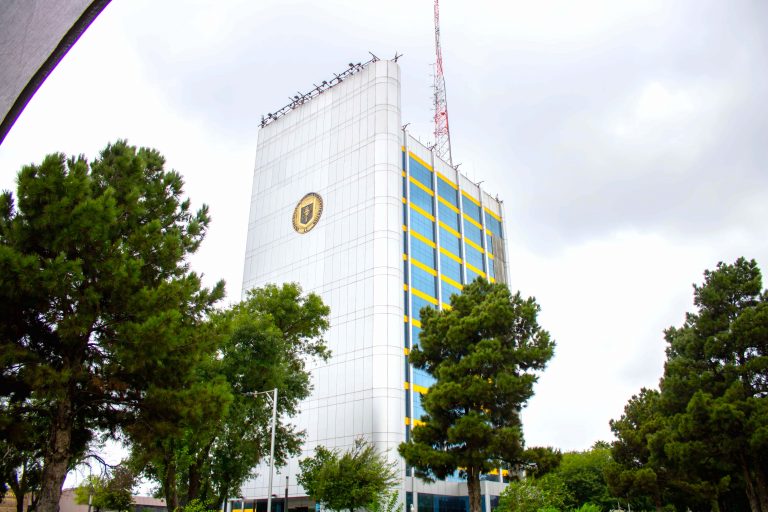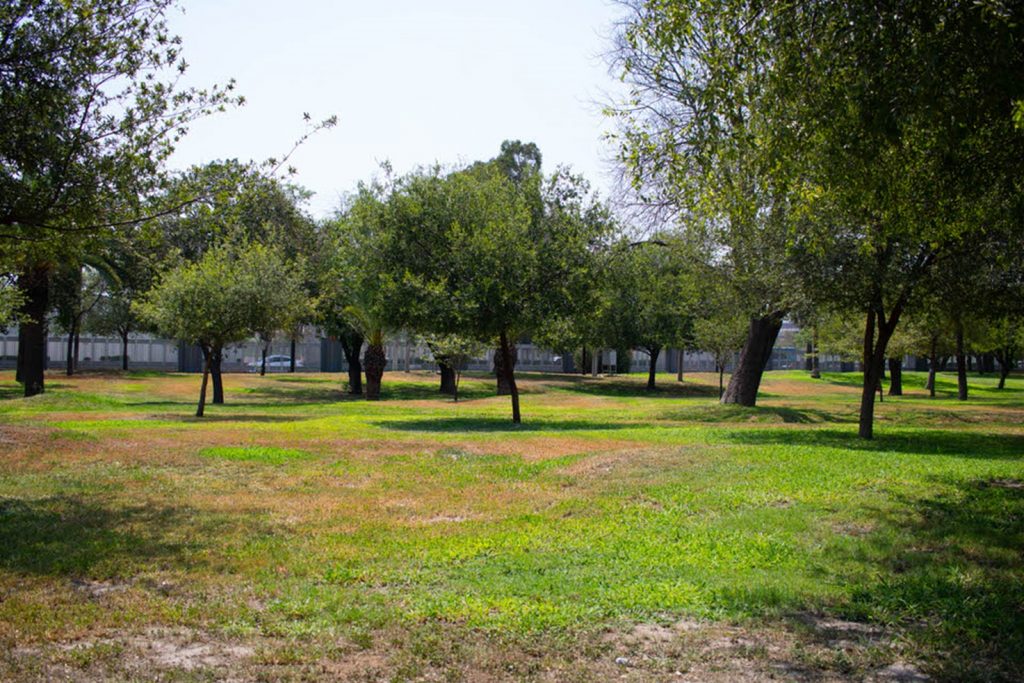Sustainable UANL

The Autonomous University of Nuevo León (UANL) has a university community comprised of 218,946 students and 7,055 academic staff, making it one of the largest public higher education institutions nationally and
internationally.
The UANL is one of the best universities in Mexico and the world for its educational quality, inclusion, equity, and innovative generation and application of knowledge with a broad sense of social responsibility that contributes to and transcends the transformation and well-being of society. It offers a wide range of educational offerings and significant technological output, which fosters the development of high school graduates, technicians, professionals, university professors, and researchers capable of performing efficiently in the knowledge society.
For more than twenty years, the institution has adopted a policy and systematically incorporated knowledge, practices, skills, and educational approaches from a sustainability perspective into all its curricula and programs. This allows the university community to incorporate the principles, values, and practices of sustainability into all its activities, without these actions affecting its academic competitiveness or social responsibility.
Currently, the concept of Sustainable Development is part of the UANL's 2040 Vision:
"By 2040, the Autonomous University of Nuevo León will consolidate its position as a public institution of
academic excellence, inclusive, equitable, and humanistic, and an international leader in education,
innovation, and cutting-edge research. It will preserve its autonomy, promote university social responsibility
and a culture of peace, and embrace emerging technologies and best practices in sustainable development to improve the quality of life and well-being of society".
Along these same lines, one of the cross-cutting themes of the UANL Institutional Development Plan 2024- 2040 is the sustainable community, considering it one of the strategic components that will contribute to the adoption of sustainable practices, highlighting proper management of natural resources that mitigate the effects of climate change, recognizing students, faculty, and administrative staff as agents of change toward sustainability.
Additionally, in 2010, the UANL created the Sustainability Secretariat (SS) with the purpose of creating an institutional, state, and national reference body on sustainability issues and problems. This body would articulate and leverage the institution's talents, resources, and efforts to contribute to building a more just, equitable, and environmentally friendly society. It would promote greater social integration and university-society co-responsibility in the education of its students and in all its activities, incorporating the principles, values, actions, and endeavors that lead to environmental stewardship, social commitment, and democratic life among members of the university community and the surrounding social environment.
To date, the UANL is the only university at the national level that has a Secretariat in charge of promoting sustainability in the university environment, through not only education but also action, in order to achieve that profound transformative process that is required. to reconfigure the civilizational process of which we are part.
To achieve the goals and objectives entrusted to it, the Sustainability Secretariat has set itself the mission of leading, engaging, and promoting the transformation process toward Sustainable Development at UANL through the development of highly qualified human resources capable of addressing complex contemporary problems, addressing the deterioration of our planet, and rebuilding the foundations of social cohesion.
Some of the most relevant actions carried out by the Sustainability Secretariat are described below:
- Establish links within the academic community that carry out research, teaching and dissemination activities, in the field of sustainability, to facilitate communication, stimulate research, knowledge exchange and innovation.
- Train and update human resources in the field of sustainable development through the University Academy for Sustainable Development (AUDS).
- Promote social participation in the construction of expressions of environmental culture, socially responsible and democratic.
- Train highly qualified human resources and promote research on sustainability issues.
- Establish strategic alliances with local, national and international social agents, to promote the generation and innovative application of knowledge and sustainable technology.
- Promote the creation and work of UANL student groups linked to sustainability issues.
- Design and operation of environmental infrastructure policies, programs and projects.
- Operation of an institutional program aimed at promoting the comprehensive management of different types of waste and reducing their generation on all campuses, eliminating and/or minimizing negative impacts on the environment.
- Design and operate the control panel automated accounting, reporting and evaluation program for university environmental performance, allowing the reduction of greenhouse gas (GHG) emissions that the UANL generates as a result of its daily activities.
- Take advantage of the potential that the Institution has to develop clean energies.
- Promote the sustainable territorial development of your campus accompanied by sustainable mobility schemes.
- Prepare and disseminate the UANL annual sustainability report

These and other initiatives have succeeded in bringing about significant positive changes in the behavior of members of the university community and the surrounding social environment, focused on environmental stewardship, social commitment, and democratic life.
